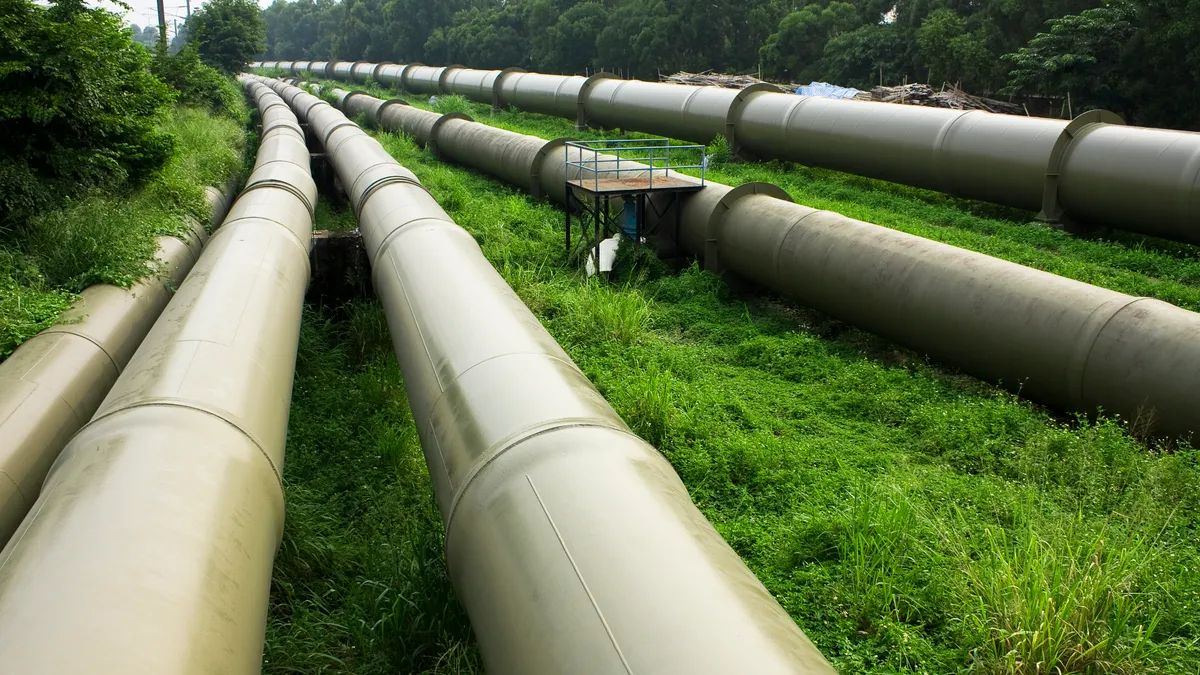Dive Brief:
- Developers of the 124-mile Constitution Pipeline earlier this month informed federal officials they would be unable to complete construction as initially planned, pushing back a projected inservice date from the fourth quarter of 2016 to the second half of 2017, RTO Insider reports.
- Williams, Cabot Oil & Gas, Piedmont Natural Gas and WGL Holdings have all partnered to develop the pipeline project connecting abundant Appalachian gas with Northeast markets.
- Williams, the project's operator, has told the Federal Energy Regulatory Commission (FERC) however that delays in tree-felling permits in New York had set the project back by up to a year.
Dive Insight:
The consortium of companies developing the Constitution Pipeline said regulatory delays have forced construction and service into 2017 after federal officials failed to issue necessary permits.
The companies had set a March 2 target for authorization to remove trees in New York, but the deadline passed without action from FERC, leaving the pipeline insufficient time to act within dates set by the U.S. Fish and Wildlife Service, which are between November 1- March 31 to mitigate impacts on on the northern long-eared bat and migratory birds.
"While this adjustment to the in-service date is disappointing, we are optimistic that the Constitution Pipeline will be placed in service during 2017 to help meet the growing natural gas demand in New York and New England," Dan Dinges, chairman, president and CEO of Cabot, said in a statement. "Based on this updated projected in-service date ... Cabot anticipates having approximately 1.35 billion cubic feet per day of incremental takeaway capacity to favorably priced markets by the end of 2017."
The project aims to move 650,000 dekatherms of natural gas per each day from Susquehanna County, Pennsylvania, to the Iroquois Gas Transmission and Tennessee Gas Pipeline systems in Schoharie County, New York.
The timing, Dinges said, is also being impacted by FERC's review of the Atlantic Sunrise pipeline project.
Constitution's developers have completed nearly all tree felling activities in Pennsylvania, they said, and assuming approval to complete stream crossing activities during the summer window this year, the pipeline could be in-service as early as August 2017.
The pipeline has been in the planning stages since 2012; FERC approved the project in 2014.














